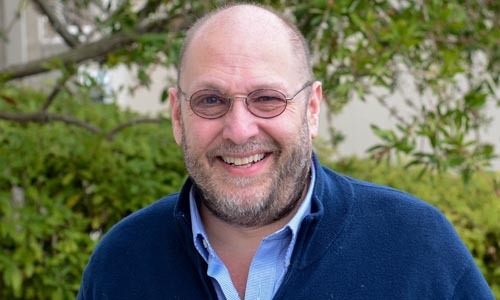
The Bio Report podcast, hosted by award-winning journalist Daniel Levine, focuses on the intersection of biotechnology with business, science, and policy.
The Bio Report podcast, hosted by award-winning journalist Daniel Levine, focuses on the intersection of biotechnology with business, science, and policy.
Episodes

Thursday Jun 21, 2018
Making Synthetic Biology a Commercial Reality
Thursday Jun 21, 2018
Thursday Jun 21, 2018
Intrexon has been at the forefront of efforts to harness biotechnology to address significant issues in health, energy, food, and environmental sustainability. The company is applying synthetic biology to a wide range of applications from halting the spread of mosquito-borne disease to preventing apples from browning. We spoke to Tom Schrader, vice president of communications and strategy for Intrexon, about the company’s use of acquisitions and collaborations, the challenge the industry has faced in scaling production to commercial scale, and why synthetic biology will have implications for industries not traditionally thought of using biotechnology.

Thursday Jun 14, 2018
Why Behavioral Economics May Turn Irrational Patients Rational
Thursday Jun 14, 2018
Thursday Jun 14, 2018
The field of behavioral economics is premised on the fact that people are irrational. By harnessing tools, such as incentives, healthcare providers and drugmakers are trying to change patient behavior as a way to improve outcomes and keep people heathy. Susan Garfield, principal in the life sciences practice of EY, discussed the opportunities for the application of behavioral economics in the healthcare realm, the role digital technologies can play in enabling this approach, and what companies are doing today to move this from academic to industry practice.

Thursday Jun 07, 2018
Pushing the Frontiers of Longevity
Thursday Jun 07, 2018
Thursday Jun 07, 2018
Dmitry Kaminskiy does not have a lot of kind words for aging. In fact, the general partner at Deep Knowledge Ventures and managing trustee of the Biogerontology Research Foundation has called it the “ultimate evil.” As part of his ongoing war against aging the venture capitalist is offering a $1 million prize to the first person to reach the age of 123. We spoke to Kaminskiy about the longevity industry today, how a shift in medicine from treatment to prevention will alter lifespans, and what he’s trying to accomplish with his longevity prize.

Thursday May 31, 2018
Is Hearing Loss a Necessary Price for Children to Pay for Life-Saving Chemotherapies
Thursday May 31, 2018
Thursday May 31, 2018
Children undergoing chemotherapy often face permanent hearing loss as a result of the toxicity of these treatments. The Children’s Cause for Cancer Advocacy is organizing a Patient Focused Drug Development meeting with the FDA in September in the hopes of getting the agency to put greater consideration into the harmful effects these drugs can have and what it means for patients to lose their hearing. We spoke to Nawal Ouzren, CEO of Sensorion, which will participate in the FDA meeting and is developing a treatment for sudden hearing loss that may be able to help these patients. We spoke to Ouzren about the problem of hearing loss for children receiving chemotherapy, why regulators and others may dismiss it as an unfortunate price to pay for a life-saving treatment, and how Sensorion’s experimental drug may help prevent these children from going deaf.

Thursday May 24, 2018
Why Diagnostics May Be Critical to Reshaping Alzheimer’s Drug Development
Thursday May 24, 2018
Thursday May 24, 2018
Alzheimer’s disease has been a costly and elusive area for drug developers. Despite many promising results in early-stage trials, drug companies have seen millions of dollars of R&D investment end in spectacular late-stage failures. While treatments for the disease are desperately needed, one of the barriers to success has been the availability of diagnostics that can detect the disease at early stages when therapeutic interventions may have their best chance for success. We spoke to Rachel Laing, managing partner of Bionest Partners about the problem, whether there are fundamental misunderstandings about the disease that have sent drug companies in pursuit of the wrong targets, and why diagnostics can play a critical role in reshaping the pursuit of an effective treatment for the neurodegenerative condition.

Thursday May 17, 2018
Why the Diversity of Genomic Data Matters
Thursday May 17, 2018
Thursday May 17, 2018
The lack of diversity in genomic data has been an issue of growing concern. It threatens to limit the benefits from the massive investment that has been made to date to transform biomedical research, drug development, and the clinical care of patients. We spoke to Jonas Korlach, chief scientific officer of Pacific Biosciences, about the problem, how it’s being addressed, and the role advancing technology can play in gleaning greater insights from the genomes that are analyzed.

Thursday May 10, 2018
Why Biomarkers May Be the Key to Immuno-Oncology Success
Thursday May 10, 2018
Thursday May 10, 2018
Developers of cancer immunotherapies are in a race to find combinations that can distinguish their products for specific indications. Biomarkers, which have played an essential role in the development of targeted therapies, have proven a much more complex challenge in the realm of immuno-oncology. Nevertheless, biomarkers may be the key to winning the competitive battles in immuno-oncology. We spoke to Rachel Laing, managing partner of Bionest Partners, about the role for biomarkers in immuno-oncology, why immuno-oncology companies have much at stake in the hunt for biomarkers that can better select patients for their therapies, and the role biomarkers will play in the move toward real-time oncology.

Thursday May 03, 2018
Seeing Virtue in Patients
Thursday May 03, 2018
Thursday May 03, 2018
As the value of the patient perspective gains greater recognition throughout the healthcare continuum, Wego Health is seeking to both tap and provide that perspective to guide a range of clients within the world of healthcare. The company has amassed a network of more than 100,000 people that includes patients, caregivers, thought leaders, and influencers. We spoke to Jack Barrette, founder and CEO of Wego, about the company, the changing role of patients, and how the patient voice is being harnessed to transform healthcare today.

Daniel Levine
Daniel Levine is an award-winning business journalist who has reported on the life sciences, economic development, and business policy issues throughout his career. He is founder and principal of Levine Media Group, host of The Bio Report and RARECast podcasts, a senior fellow at the Center for Medicine in the Public Interest, and author of Global Genes’ annual NEXT report on emerging trends in the world of rare disease. From 2011 to 2014, he served as the lead editor and writer of Burrill & Company’s acclaimed annual book on the biotech industry. His work has appeared in numerous national publications including The New York Times, The Industry Standard, and TheStreet.com.
